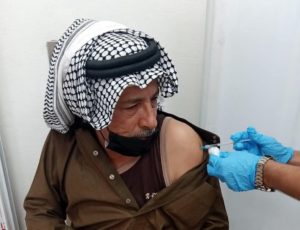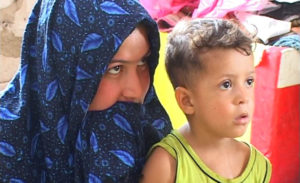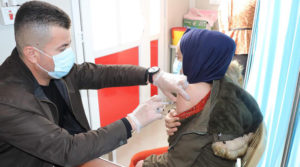Religious minorities around the world are being targeted and blamed for the spread of Covid-19. In this latest blog in our religious inequalities and the impact of Covid-19 series, Lasse Morthost shares reflections on how the contemporary crisis, caused by the spread of Covid-19, is both exacerbating and echoing historical and structural patterns of socio-political discrimination of religious minorities on a global scale.
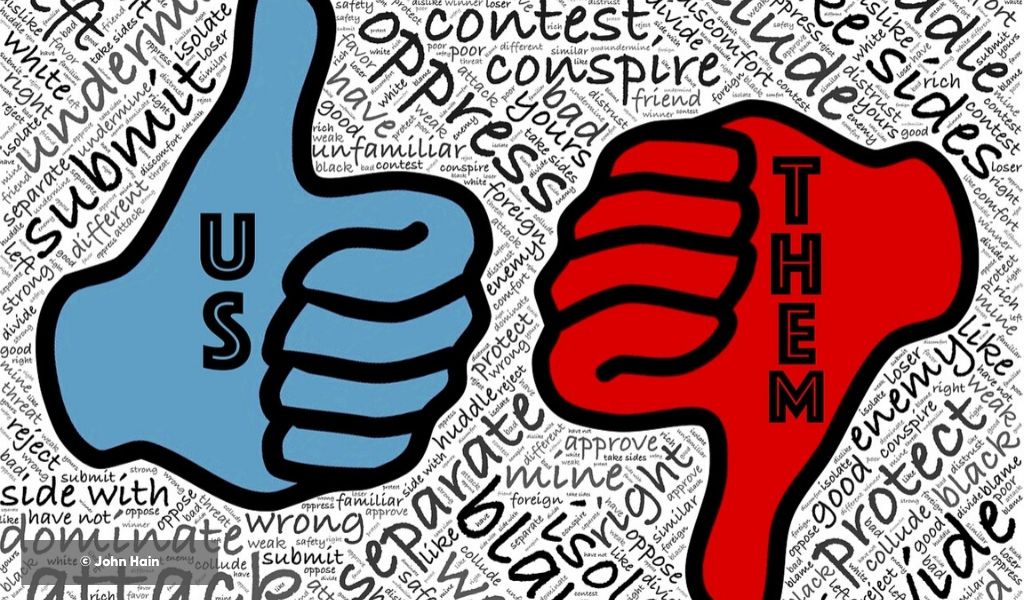
Us vs Them image and words. Credit. John Hain (CC0)
If freedom and democracy were already in decline before the pandemic, governmentally infused Covid-19 policies have widened these pre-existing social cleavages and marginalisation through scapegoating, which have increased social fragmentation – what the United Nations Secretary-General António Guterres recently termed the “tsunami of xenophobia”.
While exclusion and discrimination of religious minorities undermine the efficiency of epidemiological responses, it can also lead to a vast spread of harmful disinformation and public hate speech. This has produced what the World Health Organization has denounced an “infodemic” – scapegoating of religious minorities in India, is just one out of many dire ongoing examples. But how can we understand the dynamics of ‘scapegoating’ and how are these manifested during this pandemic crisis of the so-called globalised world?
The origins of the term “Scapegoat”
The etymology of the term scapegoat dates back to Hebrew descriptions of Yom Kippur rituals in the Torah’s Book of Leviticus, where a goat was burdened symbolically with the sins and misdeeds of the Jewish people, and then released into the desert to carry these away (to make them escape). A ritual, which originally engendered positive feelings and outcomes for the Jewish community, linked to its liberating and cleansing value.
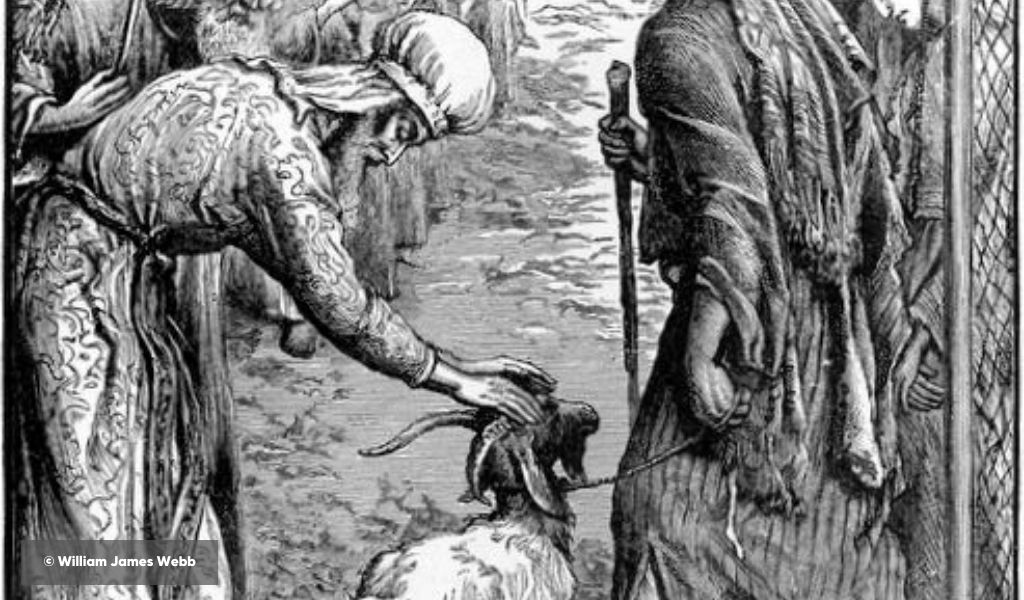
Sending out the Goat – image by William James Webb (Wikimedia)
In more recent times, a scapegoat has become imbued with only negative connotations where an individual or a group of people are unfairly blamed for the misfortunes of others,. This has especially been the case with failed crops, economic recession or the spread of various diseases and epidemics throughout history.
According to the Italian historian Carlo Ginzburg, “the prodigious trauma of great pestilences intensified the search for a scapegoat on which fears, hatreds and tension of all kind could be discharged.”
Violence against religious minorities during the Great Plague of Europe
At the height of the plague, or the Black Death between 1347-51, Europe’s most lethal disease, mass violence and persecutions spread all over the continent; Catalans in Sicily, beggars and clerics in Narbonne, Carcassonne and Grasse in France, and pilgrims in Catalonia were condemned as transmitters and murdered.
But it was especially the Jews that suffered from brutally organised pogroms, where more than one thousand communities were eradicated throughout Spain, France, down the Rhineland, and throughout Eastern Europe.
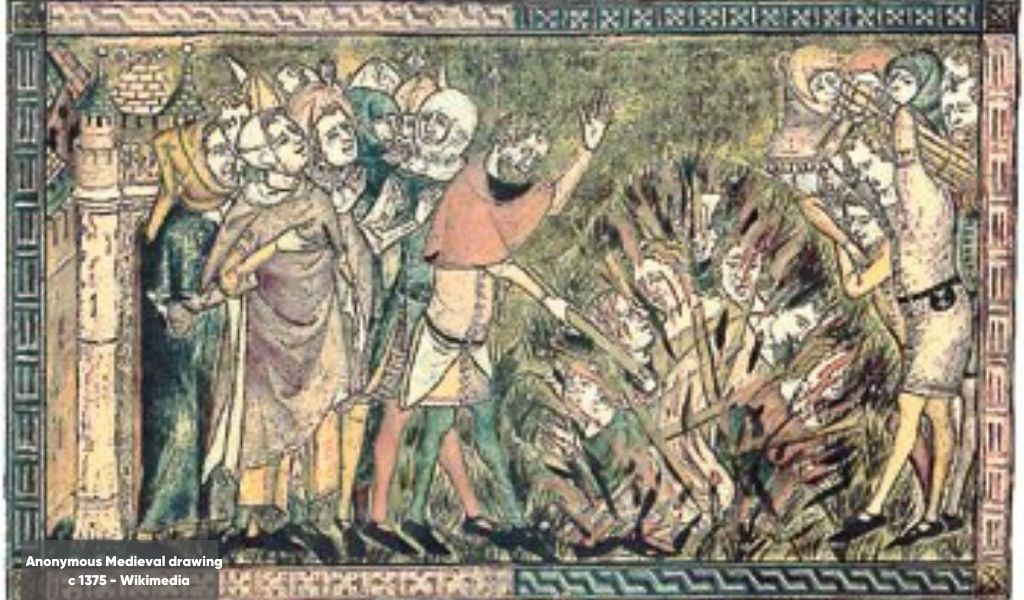
During Europe’s Black Death plagued, Jews were accused of spreading the disease. Contemporary drawing of the Strasbourg massacre of 1349. Permission: A photograph of an anonymous drawing from a Medieval manuscript (Gillis Li Muisius)
Accusations and rumours of Jews as primary transmitters of the plague by allegedly poisoning city wells to end Christendom culminated when the authorities in the German region of Brandenburg passed a law in 1349, which preemptively condemned Jews for spreading the plague. Such tendencies reverberate through to today’s discriminatory patterns and policy measures.
Scapegoating and Covid-19
In a significant amount of the nations which have encountered outbreaks of the novel coronavirus, politicians and opinion leaders have openly condemned religious minority populations under the guise of epidemiological containment, through hateful messages on social media, public speeches and official policies. These condemnations initiated from the top have exacerbated pre-existing prejudices among their political supporters and majority populations.
Aside from the already well-documented structural discrimination and scapegoating of Muslims in India, Yazidis and Kakais in Iraq and Christians, Hazara Shias and Hindus in Pakistan, Cambodia’s Khmer Muslims were virally accused with personal references, by the Ministry of Health, for bringing the virus into the country from Malaysia, in a Facebook post back in March. The viral post immediately led to a plethora of online hate speech towards the Muslim minority population, whom have since experienced increased public discrimination by the Khmer Buddhist majority.
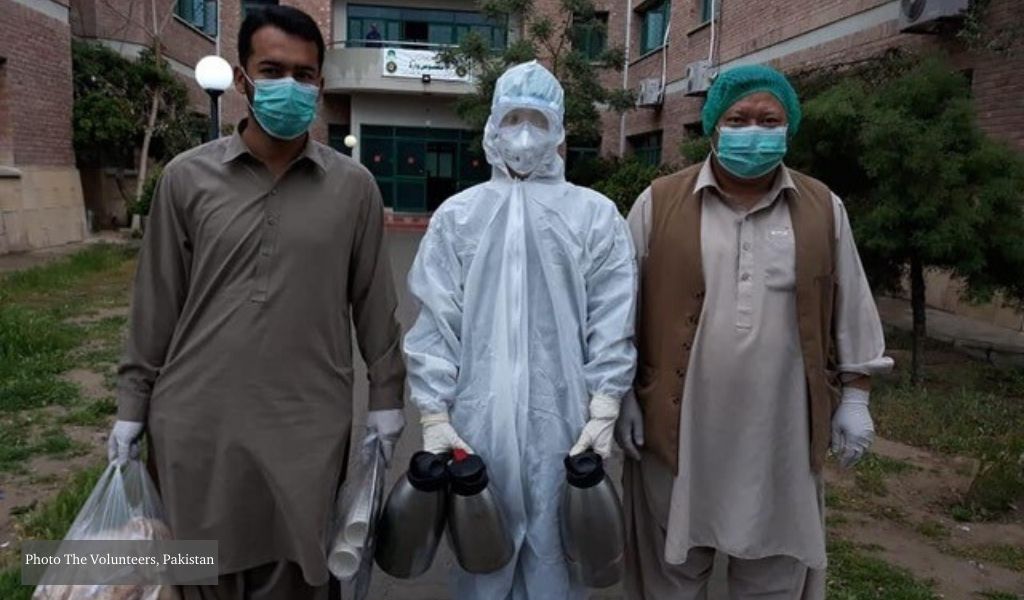
Hazara volunteers who provided food and basic supplies for people in Covid-19 quarantine. Credit. The Volunteers
While anti-Semitism and Jewish scapegoating is a centuries old phenomenon, rumours and accusations are yet again flourishing on social media and in global media, hitting out against Jewish communities as the primary evil behind the novel virus. In France Alain Mondino, from the National Rally Party, posted a video linking Jews to the spread of the Coronavirus.
In Iran, the TV channel Press TV has broadcast reports accusing Zionists of being behind the virus. In a widely shared video shared on Twitter, an Iranian cleric further claimed, during a protest against the closure of a holy site in Qom, that; “We are not followers of the World Health Organization. They are a bunch of infidels and Jews”.
In Turkey similar accusations have reached a large number of people, and have been shared widely. On the pro-government TV station, ATV, a Turkish ‘expert’ stated “Whoever spread the virus, will find the cure. Israel already made a statement that they found a vaccine.” The anchorman followed up: “They found the vaccination…whoever is the source [of the vaccine], they and their accomplices spread the virus, you say, right?”. The “expert” confirms: “Absolutely! Israel has already said that in a matter of time, they will make the vaccination available commercially”.
The ‘quest’ for scapegoats during the Covid-19 crisis has further led to sectarian tensions in the Middle East and throughout the Arabian peninsula. The Eastern part of the Qatif province, a Shia dominated governorate in the Sunni dominated Saudi Arabia, was forced into full lockdown back in March, after a number of Shia Muslims were tested positive for Covid-19, following their return after a pilgrimage to holy Shia sites in Iran. The Qatif governorate is, however, the only region of the nation, which was forced into full lockdown. This very specific geographical lockdown has raised debates about continuous discrimination of the already marginalised Shia residents by the Sunni-led government of Riyadh.
A number of Gulf Cooperation Council states, Bahrain, Kuwait and Saudi Arabia, are further officially holding Iran responsible for the spread of Covid-19. This has led to increased stigmatisation of Shia Muslim returning pilgrims and Shiite regions in general.
The dynamics of scapegoating
The spread of the novel Covid-19 is clearly echoing how anxieties are projected to nations and populations through false allegations, which ultimately become a projection of the Other. The global pandemic is an example of how a number of governments and factions with intolerant and exclusory ideologies. are blaming faith groups from minority populations for the spread of the virus in order to amplify control and justify repression of already marginalised people. In other words, the spread of Covid-19 becomes a self-reinforcing concentric circle of Othering through scapegoating, which makes elite-driven discourses and narratives socially acceptable, and violence ‘on the ground’ normatively justified.
With a distorted mirror of reality, harmful xenophobic and discriminatory structural realities are created, which aim at retaining existing unequal social hierarchies – hierarchies, which are more focused on social control, blame and punishment, than on epidemiological success and human dignity.

